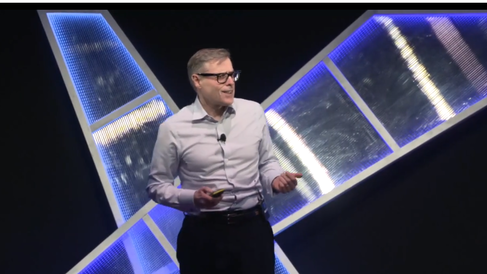
The Turing Talk 2020 by Professor Mark Girolami, Sir Kirby Laing Professor of Civil Engineering at the University of Cambridge, Royal Academy of Engineering Research Chair, Academic Director of CDBB, and Director of the Lloyd’s Register Foundation Programme on Data Centric Engineering at the Alan Turing Institute, played to full-capacity audiences in London, Manchester and Belfast as part of the EngTalk Series and BCS Lecture Series.
In considering the journey so far on the road to developing digital twins and looking ahead to their potential – the market is forecast to grow by over $20 billion by 2025 – Professor Girolami first looked back to the history of ideas and explored the human desire to better understand and control the world around us; themes that have shaped the development of civilisation since history began and that will inform all of our futures.
Citing key moments in the development of machines to predict future events, Professor Girolami reflected on: the Antikythera mechanism, an advanced scientific instrument of its day in 100BC, used by the ancient Greeks to chart the movement of the sun and the moon and predict eclipses and astronomical events with a view to better understanding the relationship between the heavens and the earth; the machine constructed by Lord Kelvin (Sir William Thomson) in 1876 – considered to be an early analogue computer – to calculate the ebb and flow of tides, information essential to marine navigation and critically important during the D-Day Normandy landings of the Second World War; and advancements in computing in the 1960s that enabled the exploration of space.
Highlighting examples from the current frontier of digital twin technology – including Samsung’s recently-launched video chatbots, the next generation of air-traffic control systems and the development of a National Digital Twin – Professor Girolami described the potential societal benefits of digital-twinning technology as interconnectivity to inform better and more sustainably-minded decision-making, increase levels of security, make economic and finance more efficient, and the emergence of new markets.
There are challenges on the way to optimising digital twins and these are being grasped by many engineering institutions and organisations. Of the future Professor Girolami said: “It’s certainly a very exciting time. Just about every single sector – engineering, medicine, finance, retail and government – nothing is untouched by the potential of digital twins.”
Watch the full talk at: https://www.theiet.org/membership/member-news/member-news-2020/turing-talk-2020-digital-twins-the-next-phase-of-the-ai-revolution/
